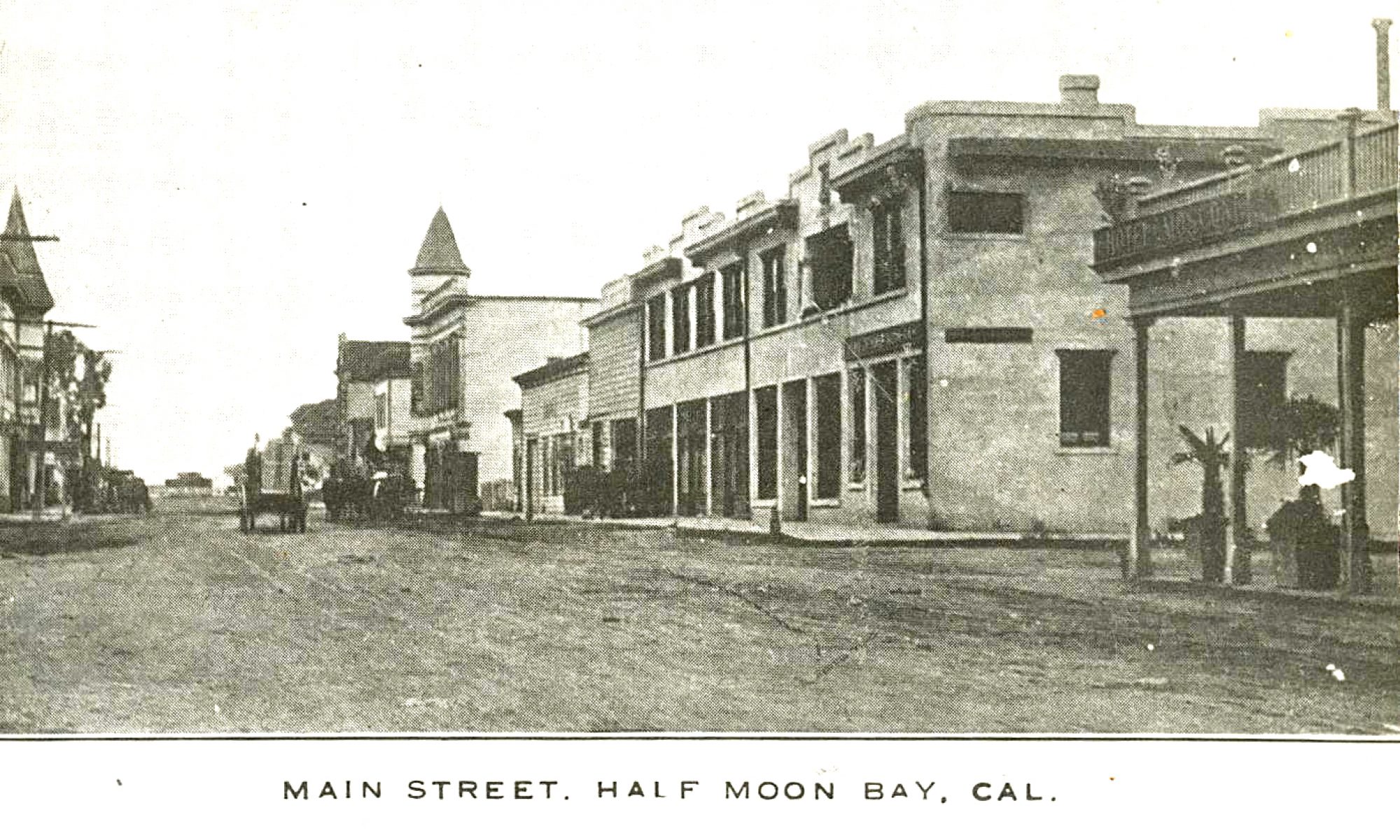Lunch Expresso by Erich von Neff
Joe Lauracella said that deep within the forest near Skyline Ridge there lived a danseuse named Karin Yamakawa who was rumored to have pouty lips and perhaps much more. At the time (the late 1950s) beatnik artists of various persuasions lived in little enclaves in the Santa Cruz Mountains.
We were about to have one last drink at Pete’s Cafe in Half Moon Bay when Pete said, “Why not have a San Miguel? Why not have a Rainer Ale?”
We each had a San Miguel, climbed in the Red Lancia, headed for La Honda, and then toward the ridge. About half a mile from Skyline we turned off on an old logging road which wound through the redwood forest. Presently we came to an A frame which had seen better days.
Joe parked the red Lancia. We knocked on the door. Could he be right? Would we soon find out?
Soft footsteps approached. Hopefully she was alone. Shortly a woman with penetrating black eyes opened the door, said something quietly to Joe, then motioned us both inside.
Speakers, some large, some very tiny, were in asymmetrical arrangements in the walls. Egg cartons were also on the walls, as were coffee sacks: Colombian, Kenya, Guatemala, Costa Rica….
There were in those days, supposed to be very important empirical reasons for these arrangements. The hi-fi worked better that way. And you found this out by constantly rearranging various permutations, of speakers, egg cartons, and coffee sacks, until you found the right mix. Though there were always some adjustments to be made.
The speakers, amplifier, and turntable were all built from Heath Kits, modified, of course.
In keeping with the times, the overall mood was Zen. The speakers egg cartons and coffee sacks were on the clean surface of the redwood walls…Lines. Forms.
“O-kesa*” (Priest’s robe).
I had seen Alan Watts on T.V. discussing “The Way of Zen.” “The Spirit of Zen.”
“Sodesuri.” (cutting the sleeve.)
We sat on “tatami” (mats) listening to Japanese music. The samiseen** played quietly, quietly.
This was the era of cheap wine. We drank Gallo Sherry.
Karin spoke with a trace of Japanese accent; her father had come from Osaka and was now a longshoreman in San Francisco. She wore: black Leotards, a grey sweater….hand-knitted, perhaps by herself. Her hair was straight and black.
Karin’s legs were stretched out in front of her, like a ballerina resting. She was, in fact, in an avant- garde company in Palo Alto: Group 10.
The Leotards were definitely alluring. The sweater a little loose fitting for my taste. The Japanese music a little more subdued than I was used to.
Was she “Die Frau ohne Schatten?” (The woman without a shadow).
And what was Group 10?
Supposedly she had danced in “Lunch Expresso” in Half Moon Bay. Black leotards had crisscrossed each other as had arms. For those who had seen it, “Lunch Expresso” seemed nothing more than various human beings in disorganized groups. Which may have even been the point.
Joe and Karin began a conversation which I punctuated at odd intervals.
Ryo kuruma” (Pair of wheels)
Finally, we passed out from the wine. We woke up in the morning. The sunlight sifting through the redwoods.
“Kurumasaki” (The end of the wheel).
The speakers, egg cartons and coffee sacks on the redwood walls were like Japanese block prints. Reproduced. Reproduced.
“Namu Amida Batsu” (Homage to the Amida Buddha)
Karin was gone. “Lunch Expresso” was playing in Half Moon Bay.
============
Note from June: There were some *** in the above piece by Erich, and I have now misplaced the story but I will fix it soon.
About the author
Erich von Neff is a San Francisco Longshoreman. He received his masters degree in philosophy from San Francisco State University and was a graduate research student at the University of Dundee, Scotland. Erich von Neff is well known on the French avant-garde and mainstream literary scenes. He is a member of the Poetes Francais and La Societe des Poetes et Artistes de France. In the course of thirteen years he has had the following publications in France (in French)
Poems: 903
Short Stores: 135
Small press books: 8
A Victor Hugo prize was awarded to Erich von Neff’s novel, “Une Lancia rouge Devale Lombard Street A tombeau ouvvert,” 1998
